The stage was set for two days of innovative and constructive debate
Insights from the Institute of Retirement Funds Africa’s Annual Conference
The Institute of Retirement Funds Africa (IRFA) recently concluded its annual conference in Cape Town, which took place from 17 to 19 September 2023. The event gathered over 1200 delegates and featured more than 40 exhibitors, including local and international subject matter experts and industry leaders.
The IRFA conference has always provided a unique opportunity to share world-class content, enrich knowledge, and hone skills within the local retirement sector. This yearly event, which attracts a large number of industry stakeholders, aims to provide up-to-date knowledge and best-practice tools for the management and governance of retirement funds.
Focusing on “Making It Happen”
This year’s conference, held in the picturesque city of Cape Town, was no exception. With the conference theme of “Making it Happen,” the spotlight was cast squarely on the significant regulatory and policy changes that are reshaping the South African retirement landscape. Both local and international subject matter experts and industry leaders gathered to provide insights on these transformative changes.
The theme of “Making It Happen” underscores the imperative to drive innovation and transformation within the retirement sector. The pursuit of a better future for all remains a paramount goal.
A Decade of Regulatory Reforms
The discussions at the conference highlighted the substantial regulatory reforms introduced over the last decade in South Africa. Notably, the two-pot retirement system, a comprehensive reform, aims to secure better retirement outcomes for fund members and provide access to funds during times of financial distress.
The discussions also delved into Regulation 28 of the Pensions Fund Act, which holds the potential to drive socio-economic progress through private equity and infrastructure investment options. This reform emphasises the need for fund investments to make a sustainable impact in South Africa and the African continent.
Member-Centric Approach
Emphasising the importance of the member in this equation, the conference discussions stressed that the most crucial stakeholder is the one standing at the end of the line: the member. The retirement sector’s role is one of privilege and responsibility, and the focus should be on how the industry, as a collective, can optimally serve its members.
The principles of Treating Customers Fairly (TCF) were highlighted as a guiding force in all aspects of the industry. Without the members of retirement funds, none of the stakeholders would have a purpose, underscoring the importance of treating members with care, integrity, and good faith.
Setting the Stage for Action
The conference discussions set the stage for actionable strategies and insights to navigate the evolving retirement landscape. The overarching task was to build practical and impactful solutions for the way forward.
The retirement sector must learn how to navigate the risks and challenges presented and continue to drive progress towards a more equitable and sustainable world while ensuring positive returns for members of funds.
Embracing Technology for Individualised Experiences
One of the key themes discussed during the conference was the transformative role of technology in shaping individualised member experiences. The discussions highlighted the importance of personalising each member’s retirement funding journey through education, information, and engagement.
The convergence of regulatory change, technological innovation, and consumer dynamics has transformed the South African retirement fund sector. Leaders in the industry must focus on individualising each member’s experience of retirement funding.
Data-Driven Insights for Governance
Crucially, these discussions emphasised that data-driven insights enable funds to monitor the effectiveness of their structures and make adaptations based on empirical evidence. In the context of the two-pot system and default regulations, these insights prove invaluable for optimising the impact of fund structures on members’ lives.
By leveraging technology, funds can integrate these insights into engagement processes at critical junctures in a member’s retirement funding journey. Engaging with members at the right time is highly effective, as members are more receptive to messaging and more likely to seek information and help when they need it.
The Growing Complexity of Investment Decisions
The discussions also delved into the challenges of aligning expectations with investment reality. The impact of the relaxation of exchange control and increased offshore exposure on local market dynamics was explored. Over the last few years, the investment universe has expanded rapidly, with increased allocation to offshore assets leading to a significant increase in the number of investment options available.
It was noted that managing a portfolio now involves considering multiple competing factors when constructing and managing a portfolio. A strong risk management focus is essential when considering asset allocation, along with the importance of balancing local and global assets while ensuring a robust balance between liquid and illiquid assets.
Navigating the Future
In conclusion, the discussions at the Institute of Retirement Funds Africa’s annual conference underscored the imperative of innovation, transformation, and member-centric approaches in navigating the evolving South African retirement sector. These discussions provided actionable insights into how the industry can continue to drive progress while ensuring better outcomes for all members of retirement funds. The theme of “Making it Happen” resonates as a call to action for the sector as it charts its course into the future.
The conference’s emphasis on technology, data-driven governance, and the challenges of investment decisions highlighted the complexity of the retirement sector. These challenges are not insurmountable but require a collaborative effort from all stakeholders to ensure that retirement funds continue to evolve and meet the needs of their members effectively.
As the retirement sector faces regulatory changes and technological disruptions, adaptability and innovation will be key. The pursuit of a better future for all members remains at the forefront of the industry’s mission, and conferences like IRFA’s annual event play a crucial role in shaping that future.
In the years ahead, it is clear that the retirement sector will continue to evolve and transform, and the lessons learned from this conference will serve as a guiding light for those navigating the path forward. The commitment to “Making it Happen” is a commitment to positive change, transparency, and member-centricity, and it is a commitment that will drive the sector towards a more equitable and prosperous future.
“Championing Excellence:”
Highlights from the Institute of Retirement Funds Africa’s 37th Annual Awards Programme
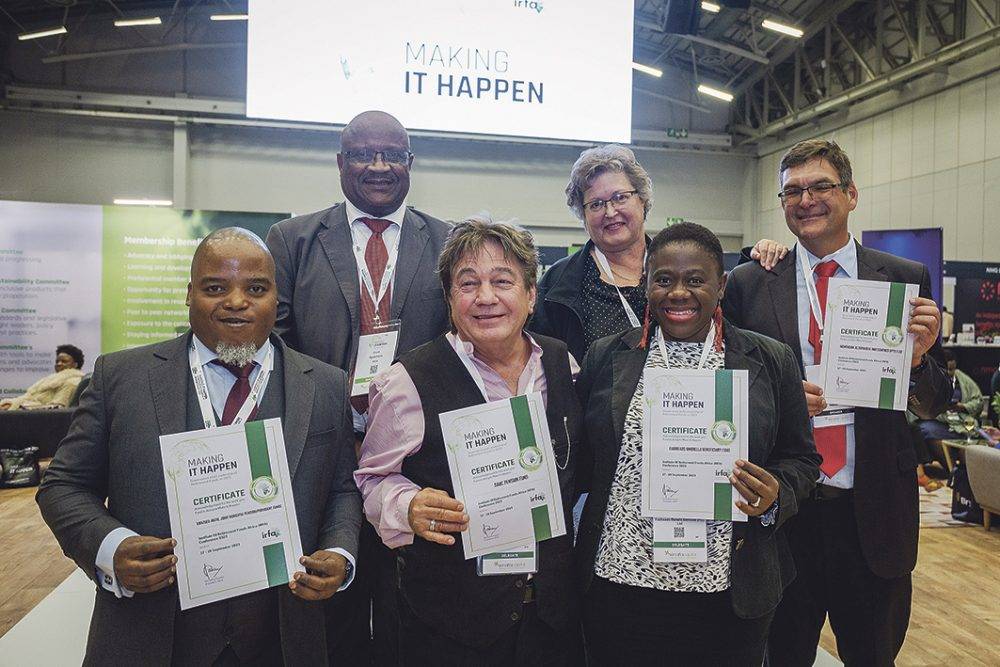 Winners of the IRFA Making it Happen Challenge pose with their award certificates, together with IRFA board members Professor Enos Ngutshane and programme champion Cheryl Ward.
Winners of the IRFA Making it Happen Challenge pose with their award certificates, together with IRFA board members Professor Enos Ngutshane and programme champion Cheryl Ward.
For 37 years, the Institute of Retirement Funds Africa’s annual awards programme has always attracted entries of the highest calibre, showcasing sectoral excellence and providing learnings for the retirement sector across the board.
This year, IRFA aligned its awards programme with the conference theme and nine winners stepped up to the podium to collect their certificates from Past President Professor Enos Ngutshane.
In awarding the certificates, Professor Ngutshane noted that the winners convinced the programme judges that they had developed programmes and strategies that did indeed make it happen for the members of retirement funds and for society at large.
“These entrants have embraced the spirit of transformation and found ways to engage, communicate, educate, invest and translate legislative changes into concrete action operationally within their own funds.”
The winners (listed alphabetically) are
Fairheads Umbrella Beneficiary Fund for a ‘New Money’ script for verbal communication which has been added as an additional process in the Welcome and Onboarding Procedure.
Kwazulu-Natal Joint Municipal Pension and Provident Funds for financial literacy programmes for members and the youth and care projects for the elderly and those less fortunate
Momentum Alternative Investments for creating investment solutions that address pressing social challenges while also generating acceptable financial returns for clients
SABC Pension Fund, for using measurement and engagement to maintain stakeholder confidence and for investment excellence, providing assurance that while legislative changes are many and varied, members’ benefits are safe (2 awards).
Tshwane Municipal Provident Fund for attracting over 75% of its membership to the new and improved website, which has an emphasis on interactive functionality and easy-to-obtain information.
Transport Sector Retirement Fund for investing in infrastructure development and ESG projects to benefit the country and its members.
Vodacom Group Pension Fund for financial literacy and improved digital information
University of Cape Town Retirement Fund for developing a targeted education approach to improve retirement outcomes and financial security
The overall winner, awarded gold, is the Transport Sector Retirement Fund.
Institute of Retirement Funds Africa Strengthens Commitment to Industry Advancement
Annual Conference Showcases Collaborative Efforts to Tackle Common Challenges
The IRFA, through the dedicated work of its various committees, actively encourages the exchange of insights and ideas among its members to tackle shared issues. These committees include the Legal and Technical Committees, the Transformation and Sustainability Committee, the Retirement Funds Audit Committee, and the Investment Practices Committee.
A notable addition to the IRFA’s committee line-up is the African Membership and Collaboration Committee, marking a significant milestone in the organisation’s journey. This new committee aims to expand the organisation’s influence beyond South Africa’s borders.
IRFA President, Geraldine Fowler emphasised the global nature of the challenges faced by the retirement industry, stating, “the challenges facing the retirement industry are not isolated to the southern tip of Africa. Many of these same challenges are experienced throughout Africa.” She continued, “In discussions with representatives from countries across the continent, the need for a forum where mutual challenges and creative solutions can be discussed was recognised.”
The African Membership and Collaboration Committee, with its primary objective of enhancing pension outcomes for individuals across Africa, is set to become a driving force for positive change on the continent. The committee will focus on fostering collaboration with retirement industry stakeholders from diverse African countries.
As the IRFA continues to actively promote and facilitate partnerships, its dedication to serving its members, the industry, and retirement fund members remains steadfast. The success and impact of the organisation’s endeavours are made possible by the voluntary hours contributed by the members of the IRFA Committees.
The annual conference serves as a testament to the IRFA’s commitment to advancing the retirement industry, both within South Africa and across the African continent. By fostering collaboration and seeking innovative solutions, the IRFA continues to play a vital role in shaping the future of retirement funds and pension outcomes for individuals throughout Africa.
Learning from the Australian Experience:
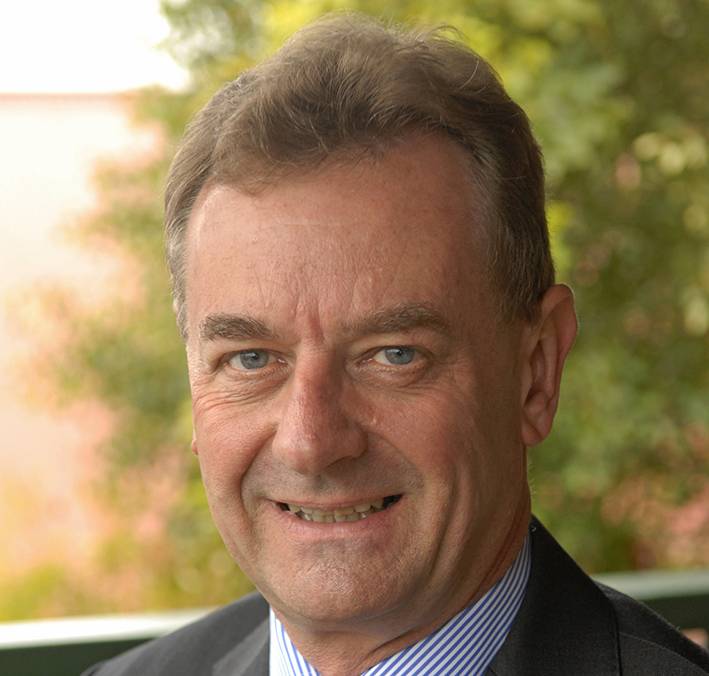 Nicholas Sherry: “an unwavering commitment to enhancing retirement outcomes.”
Nicholas Sherry: “an unwavering commitment to enhancing retirement outcomes.”
Coverage, Infrastructure and Fund Consolidation
Nicholas Sherry, a prominent figure in Australia and the international pensions arena, has dedicated his career to improving retirement and financial regulatory systems. Notably, he was Australia’s first Minister for Superannuation and Corporate Law. His unwavering commitment to enhancing retirement outcomes for Australians has left a lasting impact, particularly in the context of creating a more inclusive and efficient retirement system.
The Birth of the Cooper Review: A Catalyst for Change
Nicholas Sherry’s advocacy for reduced industry fees and improved governance within the superannuation sector marked his significant role in changing Australia’s retirement landscape. Perhaps his most significant contribution was the inception of the Cooper Review, a comprehensive assessment of Australia’s superannuation system. The primary objective of this review was to enhance the efficiency, performance, and overall effectiveness of the retirement system.
Sherry’s dedication to improving retirement outcomes extended beyond Australia’s borders. He actively participates on the international stage as a member of the G7 Pensions Forum, where nations collaborate to enhance retirement policies. His insights and experiences are valuable contributions to the global discourse on retirement reform.
Examining the Transformation of the Australian Retirement System
During his broadcast presentation at the IRFA conference, Nicholas Sherry emphasised that pension funding is not merely a social investment; it also has a profound economic impact not just in Australia but worldwide.
According to Sherry, Australia’s retirement system underwent a significant change in 1986, moving away from a simple state pension system that provided minimal benefits to civil servants and high earners. Instead, they introduced what is known as the “superannuation guarantee” .
This shift was crucial because, at the time, only about 30% of Australian workers had access to proper retirement coverage. The goal was to extend this coverage to the remaining 70% of the population. This transformation was the result of collaboration between the Labour government and organised labour, reflecting a joint effort to improve retirement prospects for a greater number of workers.
As part of this transformation, a defined contribution component was added to the superannuation guarantee. Initially set at 3% in 1986, this contribution rate gradually increased to 9% by 2002 and has since gone up to 11% in recent years. This change ensured that more Australians were saving for their retirement, leading to better financial security for the nation’s workforce.
Governance was a crucial component of this transformation. Sherry explained, “The regulatory framework and fund governance were upgraded in the process. We introduced a trustee system for investment and insisted on diverse investments in equities, infrastructure, and alternatives, yielding favourable returns for members. Our trustees are required to be licensed and undergo scrutiny before appointment.”
Another significant aspect of the reforms was the introduction of a default investment option for members. This default option is specifically designed to guide members into the most suitable investment even when they do not actively make a choice.
A noteworthy aspect of this overhaul was the introduction of public benchmarking of pension funds to establish performance standards. Funds that failed to meet these criteria were removed from the system.
Sherry emphasised that Australian pension funds own a significant portion of the country’s infrastructure and maintain a strong focus on ESG considerations in their responsible investment strategies. Additionally, he noted a substantial number of diverse offshore investments made by Australian pension funds.
A notable trend in Australia is the emergence of “megafunds” worth “hundreds of billions of dollars.” These funds are expanding their global footprint and increasingly making certain investment decisions in-house.
Global Challenges and the Way Forward
From a global standpoint, Nicholas Sherry pointed out some critical challenges. He discussed the potential effects of increasing life expectancy and declining birth rates, which could potentially affect the long-term sustainability of retirement funds. Additionally, he emphasised the rising significance of Environmental, Social, and Governance (ESG) factors in shaping investment decisions.
Sherry also noted a notable shift away from traditional defined benefit funds towards a “mixed system.” In this evolving model, the first pillar is state-funded, while the second pillar embraces defined contribution schemes. This shift signifies a broader trend in the global retirement landscape, where flexibility and adaptability are becoming increasingly crucial.
In conclusion, Nicholas Sherry’s description of the Australian experience offers insightful guidance for nations, such as South Africa and many African countries, that are attempting to develop a more inclusive retirement system. Sherry’s contributions to the transformation of Australia’s retirement sector serve as a beacon for those seeking to improve retirement outcomes and extend coverage to a broader group of workers.
Together We Are Stronger:
Collaboration for a Brighter Retirement Future
Oguche Agudah, the Chief Executive Officer at the Pension Fund Operators Association of Nigeria and a board member of the Nigerian National Advisory Board for Impact Investments, delivered a powerful message emphasising the importance of cross-continental cooperation and knowledge sharing. Agudah, a Fellow of the Chartered Institute of Bankers and an Associate of the Chartered Institute of Stockbrokers in Nigeria, brought a wealth of experience to his address.
 Oguche Agudah: “Work together as an industry and a continent”
Oguche Agudah: “Work together as an industry and a continent”
Addressing Challenges: The Perfect Storm
Agudah’s address resonated with the audience as he described the unique challenges facing the African retirement landscape as “the perfect storm.” He highlighted that these challenges, if not addressed effectively, could lead to significant future liabilities. Some of the key challenges identified by Agudah include:
Large Number of Unproductive Youth: Africa is home to a significant youth population, and finding productive ways to engage this demographic in retirement planning is crucial.
Low Savings Rate: A substantial portion of the population has limited savings for retirement, posing a significant hurdle for financial security in later years.
High Unemployment Rates: High levels of unemployment further complicate retirement planning and savings efforts.
Underdeveloped Financial Markets: Financial markets across the continent may lack sophistication, hindering robust retirement investment strategies.
Shortage of Skilled Investment Professionals: Global financial institutions frequently hire skilled investment professionals, leaving a gap in local expertise.
Lack of Infrastructure Investment: Adequate infrastructure, such as energy, roads, and water, has not received sufficient investment from central and local governments.
However, Agudah likened these challenges to a storm that eagles use to soar higher. He urged conference delegates to confront these challenges head-on and seek creative solutions.
Creative Solutions for a Brighter Future
In his address, Agudah proposed several innovative solutions to tackle these challenges effectively:
Pre-Retirement Benefits: Exploring investment and benefit solutions that allow members to enjoy retirement savings benefits before reaching retirement age
Engagement with Regulators: Fostering increased engagement with regulators to ensure that regulatory changes and legislation are “fit for purpose” and future-focused
Peer-to-Peer Engagement: Encouraging greater interaction among retirement professionals across the continent for the sharing of best practices and knowledge
Flexibility in Approaches: Moving away from rigid, dogmatic approaches and embracing flexibility and adaptability in retirement planning
External Partnerships: Willingly engaging with external parties for co-investment and risk management opportunities.
A Call to Unite for a Stronger Future
In conclusion, Oguche Agudah’s message resounded like a powerful call to action. He emphasised that by working together and finding innovative solutions, retirement professionals can strengthen the industry and, by extension, the continent. This call to action aligns perfectly with the Institute of Retirement Funds Africa’s commitment to cross-continental collaboration through its African Membership and Collaboration Committee. Together, through collective efforts and collaboration, the retirement sector in Africa can chart a brighter future for all.
Defining the “it”, speaker insights on technology and investments
Could technology hold the key?
Alexander Forbes’ Viresh Maharaj’s primary areas of responsibility include leadership of the Alexforbes individualisation capability, digital transformation, customer experience, strategic marketing and brand ownership, stakeholder management and group strategy. Maharaj summarises the content of his presentation at the conference:
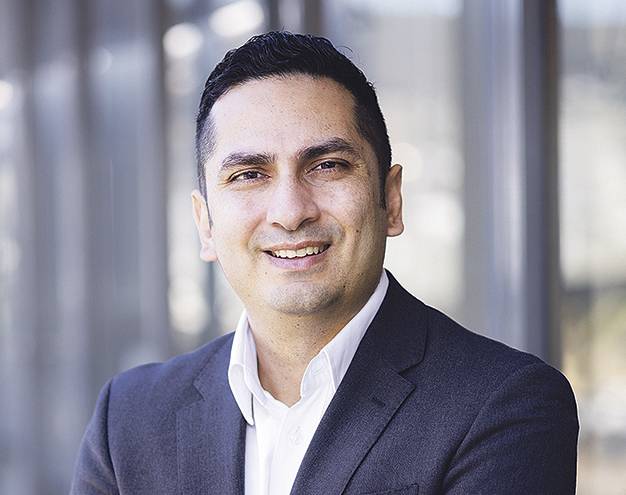 Viresh Maharaj – Alexander Forbes
Viresh Maharaj – Alexander Forbes
“The convergence of regulatory change, technological innovation and consumer dynamics has transformed the South African retirement fund sector. As leaders, our focus must now shift towards individualising each member’s experience of retirement funding. This entails educating, informing and engaging members to make better financial choices, thereby aligning the fund’s operations more closely with its fiduciary responsibilities. The intricacies and implications of the two-pot system emphasise the need for members to have easy access to essential information, guidance and actionable steps.
Rich data offers objective insights that transcend opinion and assumption, revealing member dynamics, behaviours and decision-making characteristics at a granular level. These insights enhance governance and guide boards in developing engagement plans, data flow mechanisms, and utilising retirement benefits counselling and in-fund options. Crucially, it enables funds to monitor the effectiveness of their structures and make adaptions based on empirical evidence. In the context of the two-pot system and default regulations, these data-driven insights prove invaluable for boards seeking to optimise the impact of their fund structures on members’ lives.
By leveraging technology, funds integrate these insights into engagement processes at critical junctures in a member’s retirement funding journey. Engaging with members at the right time is highly effective, as members are more receptive to messaging and more likely to seek information and help when they need it.
Implementing the right feedback mechanisms further enriches data, enabling stakeholders to understand how their members are interacting with the fund. This, in turn, informs institutional decision-making, creating a virtuous cycle of continuous improvement. Funds and employers and, ultimately, members must adopt digital capabilities to improve our collective impact on retirement outcomes significantly.
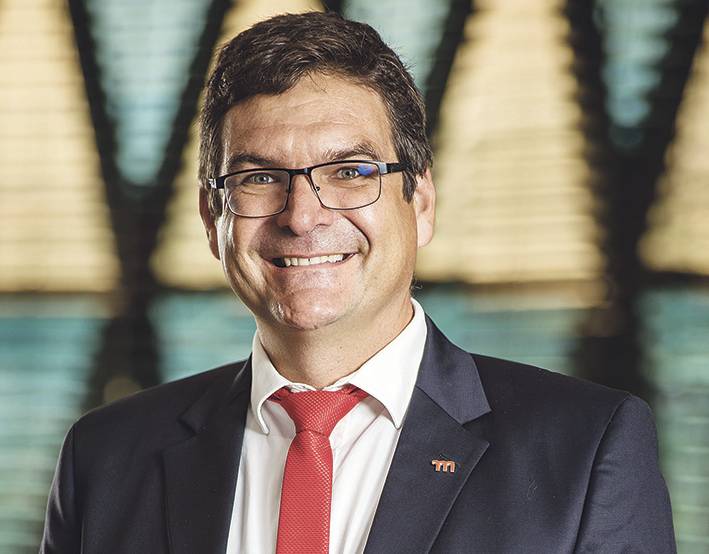 Mike Adsetts – Momentum Investments
Mike Adsetts – Momentum Investments
Moreover, the individualised approach promotes accountability and transparency and sets a new standard for leadership in the retirement fund sector, one that is member-centric rather than one-size-fits-all. By embracing this approach, we not only fulfil our fiduciary duties but also empower our members to take control of their financial futures. “
Balancing conflicting needs when “it” comes to investments
Momentum Investments’ Mike Adsetts told delegates that matching clients expectations with reality “can be a highwire act”. Mike is the deputy chief investment officer, co-responsible for ensuring the outcome-based investing philosophy is embedded and represented in decision-making processes, research initiatives, governance and, ultimately, portfolios managed by the investment team.
“There are periods of time during which it seems that very little changes. The investment industry is one where this is most definitely not the case.
On the local front, the relaxation of exchange control allowing up to 45% of assets to be invested offshore is a significant change. It is no longer tenable to simply allocate assets offshore without being mindful of the integration and alignment of the local and global components of portfolios.
The increased offshore exposure as well as the upcoming implementation of the two-pot retirement system has and will change local market dynamics, impacting liquidity and available capital. This is an important issue as there is increased need for illiquid investments, such as infrastructure, at the same time that there is a greater need for liquidity in the markets.
Over the last few years, the investment universe has increased rapidly, with the recent increased allocation to offshore assets further leading to a significant increase in the number of investment options that are available.
A portfolio manager needs to consider multiple competing factors when constructing and managing a portfolio. A strong risk management focus is an essential requirement when considering asset allocation, and crucially important is the split and alignment between local and global assets, as well as ensuring a robust balance between liquid and illiquid assets. To manage all these competing factors it is important that a well-considered investment philosophy is followed.
For South African clients and investors it is important that the relevance and place of peer comparisons between investment managers need to be reconsidered as the increased number of investment decisions that a portfolio manager needs to make will inevitably lead to a greater volatility and range of performance outcomes across portfolios.
It is important that investors consider what their own investment requirements are and to what extent they have a broad investment philosophy and belief system. Greater alignment between an investor and an investment manager will result in a more purpose-driven approach that better manages towards the required investment outcomes and will also lessen the extent to which there are mismatched expectations between investors and their portfolio managers. Any approach that bridges the gap between expectations and reality, lessening the likelihood of unexpected surprises, is worthy of paying attention to.”
Does making it happen imply looking East?
Ninety One’s Michael Power asked delegates should investors such as retirement funds be looking beyond the atmosphere of the US Dollar and the West. Michael’s current responsibilities include understanding how the shift in the centre of economic gravity from West to East is impacting on the world of investment.
 Michael Power – Ninety One
Michael Power – Ninety One
He noted that August’s BRICS Summit in Johannesburg highlighted the growing rift between the World of Trade (which is starting to fragment away from total dominance by the US Dollar) and the World of Capital (which is still Dollar-denominated and Dollar de-“dominated). Though many in the West are blind to the consequences, the BRICS movement is bringing about the greatest geopolitical realignment since WW2.
Will the Dollar remain the top reserve currency? Power says that it is not just that Asia is rising “the West is starting to crumble from within, led by the US. This narrative is not well appreciated. There are ructions coming in the Dollar-based World of Finance and I urge investors not only to speak Dollar when that dislocation starts to happen but to learn the other languages of capital”
Power argues that money being managed by the retirement sector is being managed mostly for the retirements of clients, it is by definition long term and it is vital to appreciate that, within a decade, the World of Finance will be very different – dramatically so – than it is today. He says “the sun is setting – yes for now gradually but the pace is speeding up – on the West. And it is rising in the East. Make it happen. Start adding Asia to your core offshore holdings.”
Reimagining Retirement Success
 Jabulani Ngobese (Prescient)
Jabulani Ngobese (Prescient)
It’s been a turbulent time for investors, who are having to face huge uncertainty and volatility. At times like these, it’s not easy to know which assets will deliver the performance results needed to meet different investment goals. For investors nearing, or in, retirement, and anyone else relying on income distributions, a toxic cocktail of high inflation rates and high interest rates understandably provokes anxiety about whether they will get the income they need.
Traditionally “safe” government bonds often aren’t the answer in times like these because these fixed income assets typically don’t do well in a high inflation-high interest rate environment. But income funds do offer great promise because of their potential to generate income that outpaces inflation by widening the investment universe to include a variety of different income-producing assets, including corporate bonds, dividend yielding stocks, and listed real estate investments.
In a masterclass on the topic, Reimagining Retirement Success: Embracing the Promise of Income Funds in an environment of high interest rates and inflation, Henk Kotze and Jabulani Ngobese from Prescient Investment Management addressed these investment considerations at the Institute of Retirement Fund Africa conference.
Summarised below are some key takeaways from this insightful masterclass:
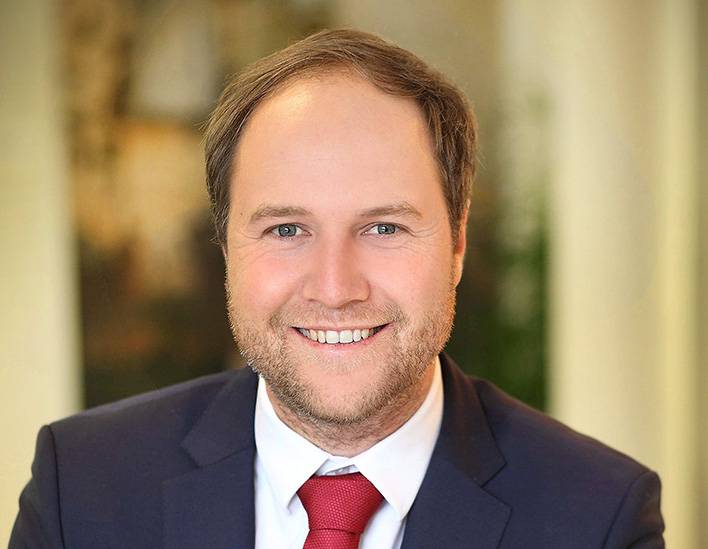 Henk Kotze (Prescient)
Henk Kotze (Prescient)
• Diversified Income Fund: The beauty of an income fund lies in its ability to draw from a variety of asset classes. This diversity allows for the creation of a portfolio that can consistently deliver returns above CPI.
• Risk Management: To preserve your capital in today’s volatile environment, effective risk management is paramount. Setting a risk target of no negative returns over rolling three months has proven to be a highly successful strategy.
• Liquidity Considerations: In an income fund, liquidity is of utmost importance. Carefully selecting your credit assets can help prevent exorbitant unwind expenses and ensure that your investments remain liquid when needed most.
Prescient Investment Management, which celebrates its 25th anniversary this year, has its roots in income investing and has generated consistent investment performance on behalf of its clients since inception by relying on its systematic, data-driven investment approach. The Prescient Income Provider Fund is a testament to this.
Global diversification proves beneficial, but not without risks
M&G’s Sumayya Davenhill, Head of Marketing and Retail Client Services says
In the past 12 months to 31 August, a relatively weaker performance from SA assets and the Rand compared to global markets has resulted in offshore investments offering South African investors excellent diversification benefits. For example, the M&G Global Balanced Feeder Fund has delivered 18.5% over the past 12 months, beating the 12.3% return from the average local balanced-type fund (both in Rands), even though the latter does offer some global exposure.
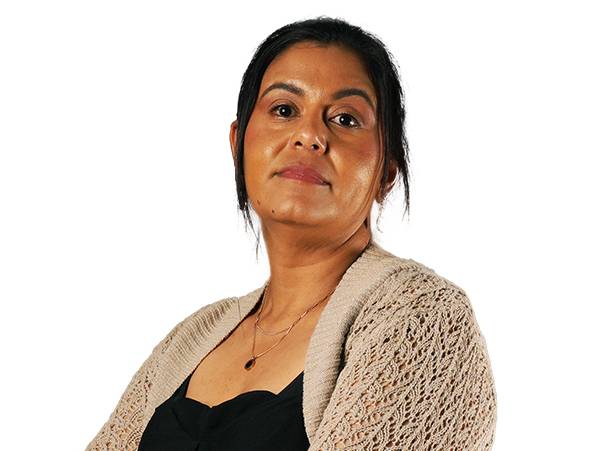 Sumayya Davenhill
Sumayya Davenhill
Global balanced-type funds invest across a combination of global equities, listed property, cash, bonds, currencies and commodities to build a very well-diversified portfolio, with a maximum of 75% in equities (excluding property) and up to 25% in property securities. Some are further diversified by combining different investment approaches and teams managing various assets within the same fund.
For example, approximately 50% of the M&G Global Balanced Fund’s equity exposure derives from the holdings of the M&G Global Equity Fund, in which stocks are chosen using a proprietary machine learning algorithm (or artificial intelligence). The AI model helps select some 100 global shares based on in-depth analysis of their specific characteristics among the over 8,500 shares in the MSCI All Country World Index.
The AI process is enhanced by the input of M&G’s portfolio managers. The remaining 50% of the fund’s equity exposure is determined by the Multi-Asset (MA) investment team, who actively invest across shorter-term opportunities they have identified.
Similar to the equity process, 50% of the M&G Global Balanced Fund’s global bond holdings derives from the holdings of the M&G Global Bond Fund. This fund is managed by an expert team of credit analysts and portfolio managers who select a mix of the most attractive fixed income instruments across the globe. The other half of the bond investments are allocated by the MA team.
In the current positioning of the M&G Global Balanced Fund, we are neutral across global bonds and equities and selective in our stock-picking, while being somewhat overweight global cash. Global equities, in aggregate, are trading at slightly cheap levels compared to their long-run equilibrium or fair value, which is reflecting the cheapness of many global equity markets offset by the relative expensiveness of the US market. Meanwhile, company earnings reports have been mixed, with some reflecting downward revisions as they feel the effects of sharply higher interest rates.
In our view, because there are still unresolved questions around risks to earnings going forward, and some market valuations are not compensating us adequately for these risks. We remain selective: we continue to be underweight US equities, as well as Canada and Australia. We prefer the UK, Japan, China and certain other emerging markets that are relatively cheap.
In global bonds, we believe markets in aggregate are pricing in overly optimistic scenarios for interest rates and growth, and that national policy rates are more likely to stay higher for longer. Therefore we are also selective, holding 30-year US Treasuries and UK gilts offering attractive yields and excellent diversification, as well as certain emerging market government bonds where yields are high and currencies weak, but government debt and other credit risk measures are under control.